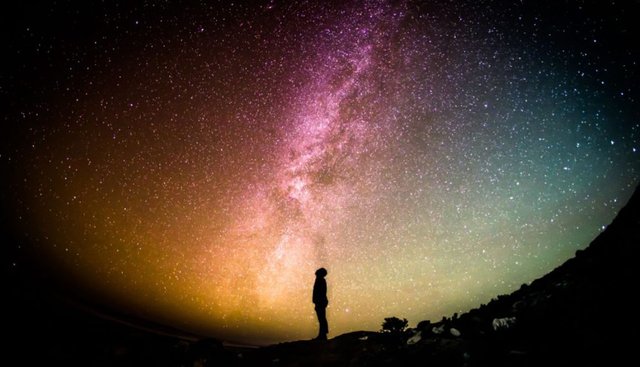Why Am I Here?

Why Am I Here? - A Fundamental Question
Why am I here on earth? Where did I come from? What am I worth? Do I have any intrinsic value? Do I serve a purpose? These are all fundamental questions. They are life's "big questions." How you answer these questions determines how you see the world and how you treat the world. Because you are a part of the world, how you see the world also determines how you see and treat yourself. So, it's important that we resolve these fundamental questions. And it's important that we discover the honest truth. Wrong answers to important questions aren't helpful.

Where do we begin in our search for the truth? We begin at the beginning. Perhaps the most fundamental question is: does God exist? It's fundamental because our answers to the other "big questions" actually hinge on how we answer this significant question. For example…
Why Am I Here? - The Atheistic Worldview
Why I am here? Well, if God doesn't exist, that means that life must have come about through some natural impersonal, unintelligent, and ultimately purposeless process. That means we're ultimately as purposeless as the very process which brought us into existence. Life's just an accident and so are you. You can find short term reasons for living like you're here because your parents wanted to have children, etc., but ultimately you're just an accident and so are your parents. Life is one big accident. You serve no purpose, you'll cause no lasting effect, and in the grand scheme of things your life is utterly meaningless. Without a Creator in the beginning, there was nobody around to put you here on purpose which means you aren't here for a reason. It's that simple.
As far as asking "what am I worth," without God we don't actually have an intrinsic value, at least not an objective one. Our worth is ultimately subjective. You might think you're worth something but someone else might think you're worthless, and as long as there's no transcendent Assessor to have the final say, no one's ultimately right or wrong. In fact, without God there's really no such thing as right or wrong. John Dewey (1859-1952), the famous 20th century atheist explained, "There is no God and there is no soul. Hence, there are no needs for the props of traditional religion. With dogma and creed excluded, then immutable truth is also dead and buried. There is no room for fixed, natural law or moral absolutes."1
Philosophers generally agree: without an absolute God to make the rules, there is no such thing as a moral absolute; there are only preferences. You don't actually have a right to live; you just prefer not to die. Someone else on the other hand might want to kill you regardless of how you feel about it, and who is to say that they're wrong? In the absence of absolute morality, power reigns supreme; the strong survive and the weak get exploited.
Thankfully most governments see it as their duty to uphold what they see as your God-given right to live, and governments also happen to be the strongest institution among men (which means they can enforce morality upon those who don't necessarily agree with your right to live). The founders of the United States of America put it well when they declared, "We hold these truths to be self-evident, that all men are created equal, that they are endowed by their Creator with certain unalienable Rights, that among these are Life, Liberty and the pursuit of Happiness, that to secure these rights, Governments are instituted among Men, deriving their just powers from the consent of the governed…" Unfortunately, some governments don't share this worldview and their people suffer terribly for it.
Why Am I Here? - The Theistic Worldview
Why am I here? Well, if God does exist, that means He is ultimate reality. If He created you for a reason, that's ultimately why your here. If you're valuable to Him, that's ultimately what you're worth. What He says is right is absolutely right and what He says is wrong is absolutely wrong. We may be free moral agents with the freedom to make moral decisions, but that doesn't mean we can choose what actually is right or wrong; that just means we're capable of choosing to be right or wrong. God makes the rules. The question is: will He enforce them? Will God ever hold us accountable for our moral decisions? The prevailing instinct among the majority seems to be that, yes, God will hold us accountable. It's as if most people instinctually know that one day they're going to have to explain all the bad things they've done (which of course means that they also instinctually know that there is such a thing as moral absolutes).
The point is, if God really does exist, terms like "justice," "purpose," and "morality" aren't abstract notions: God has a purpose for you (that's why He made you), He's the one who instituted morality, and in the end He'll see that justice prevails. That's a comforting thought to some, but it's terrifying to others.
So don't begin by asking, "Why am I here?" Begin by asking, "Does God exist?" If He doesn't exist there's really no point in asking "why am I here?" - everything is ultimately pointless. And if He does exist, you'll discover your reason for living when you discover who He is. So begin at the beginning. Does God exist?